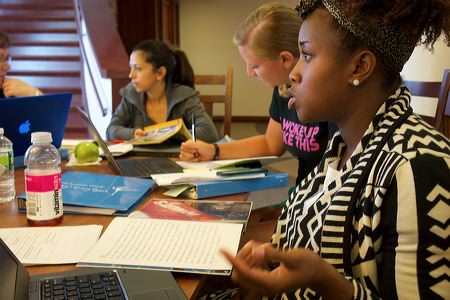Internships

Members of the Literacy Specialist Program learn not only from university courses but also from field experiences, and above all from the intersection of these two. Course work becomes vastly more complex and interesting when it is brought to bear on the real challenges in classrooms. Every student in the Literacy Specialist Program is expected to work in a classroom or two as a teacher-researcher and reflective practitioner. Students complete internships in classrooms across New York City and its neighboring boroughs. Interns log 10-12 hours of literacy-related instruction per week, typically two and half to three hours a day, four days per week.
Fieldwork assignments vary based on the graduate student’s prior experience and wishes. A graduate student who has a full-time position teaching in a nearby school may use his or her own classroom as a lab site to try out new learning. A graduate student who comes to New York from another part of the world may ask for help securing a teaching position or an assistant-teaching position, and in this instance, too, the fieldwork becomes part of that person’s full-time job.
Most graduate students, however, come to Teachers College for full-time study, during which they experience two different placements—one in the fall and one in the spring. One placement may be in a classroom and the other may be as an apprentice with a member of the Teachers College Reading and Writing Project staff or with a literacy coach. Alternatively, the placements may be in two classrooms at different grade levels.
Always, graduate students are placed in schools that are deeply involved in literacy reform. Through these placements, students have the opportunity to observe and learn from a mentor teacher who is experienced in workshop teaching, as well as to practice and engage in instruction alongside this person. Students are assigned a supervisor who visits them in their placements and provides support and feedback. Finally, students also participate in the ongoing staff development that occurs in the school. Many end up being deluged with job offers from the schools connected to the program


